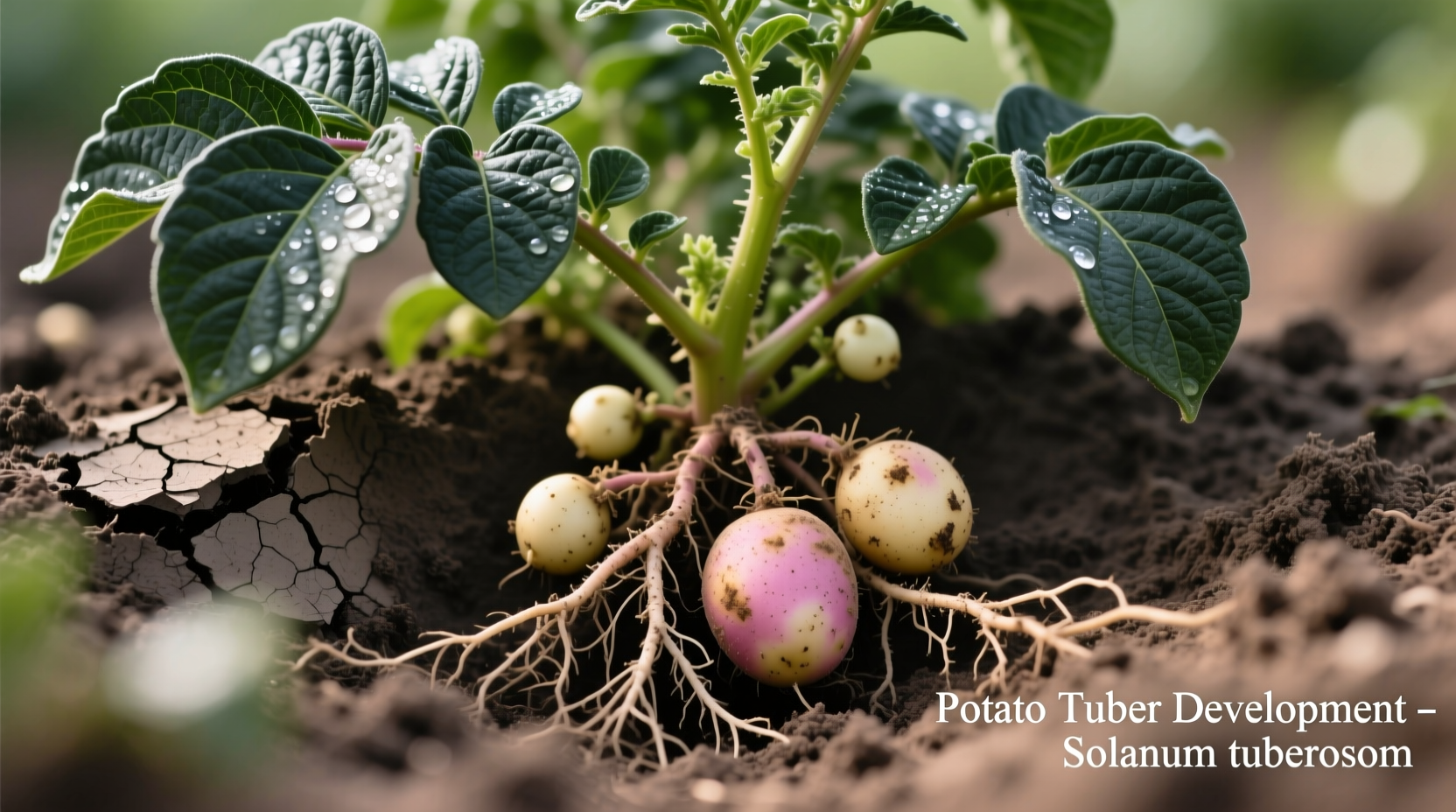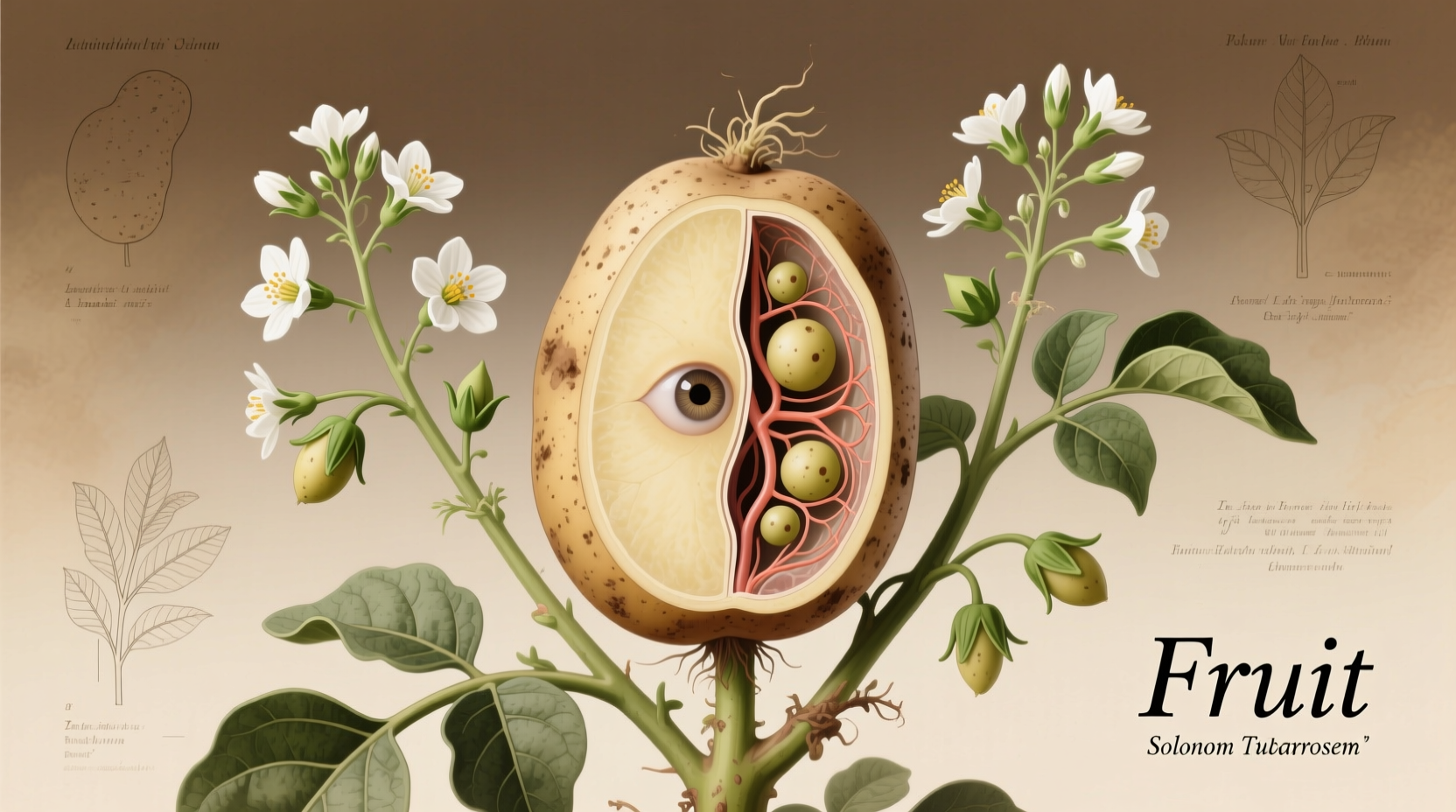Have you ever wondered why potatoes get lumped into the vegetable category while tomatoes are called fruits? The confusion around "is potato a fruit" stems from the clash between culinary traditions and botanical science. Let's clear up this common misconception once and for all.
Why People Confuse Potatoes With Fruits
Many home cooks and gardeners mix up plant classifications because culinary labels don't always match scientific ones. When searching "potato is fruit true or false," you're not alone—this question generates thousands of monthly searches. The confusion often comes from:
- Learning that tomatoes and cucumbers are technically fruits
- Misunderstanding what defines a fruit botanically
- Overgeneralizing the "vegetable" category in cooking
Botanical Definitions: Fruit vs. Vegetable
To understand why "potato classified as fruit" is incorrect, we need to examine botanical definitions:
A fruit develops from the ovary of a flowering plant and contains seeds. Think apples, oranges, or even tomatoes—these all form from flowers and house seeds.
Vegetables is a culinary term with no botanical meaning. Botanically, what we call vegetables could be:
- Roots (carrots, beets)
- Stems (celery, asparagus)
- Leaves (lettuce, spinach)
- Tubers (potatoes, yams)

The Potato's Botanical Journey
Potatoes (Solanum tuberosum) follow a specific development path that confirms their tuber status:
- Flowers appear on the potato plant (these can produce actual berries with seeds)
- Stolons (underground stems) grow horizontally from the main plant
- These stolons swell at their tips to form tubers (the potatoes we eat)
- Tubers store energy for the plant, not seeds for reproduction
This process differs fundamentally from fruit development. While the potato plant does produce small green berries that contain seeds (technically fruits), these are toxic and not the part we consume.
| Characteristic | Fruits | Potatoes (Tubers) |
|---|---|---|
| Botanical origin | Mature ovary of flower | Swollen underground stem |
| Contains seeds | Yes (usually) | No |
| Primary function | Seed dispersal | Energy storage |
| Plant part | Reproductive structure | Modified stem |
| Examples | Tomatoes, cucumbers, peppers | Potatoes, yams, Jerusalem artichokes |
Why This Classification Matters Practically
Understanding that "potato is not a fruit botanically" has real-world implications:
Cooking Applications
Fruits typically contain more sugar and acid, affecting how they cook. Potatoes' starch-based composition makes them behave completely differently in recipes than true fruits. You wouldn't substitute potatoes in a fruit salad or use apples in mashed potatoes!
Gardening Considerations
Tubers like potatoes require different growing conditions than fruiting plants. They need loose soil for tuber expansion rather than the support structures fruiting plants often require. The USDA Agricultural Research Service confirms that proper potato cultivation depends on understanding their stem-based nature.
Storage Requirements
Fruits often release ethylene gas that can sprout potatoes. This is why storing potatoes with apples (a fruit) actually helps prevent sprouting—the ethylene triggers dormancy. The University of Idaho Extension explains this interaction stems directly from their different biological classifications.
Common Misconceptions Addressed
"If tomatoes are fruits, why aren't potatoes?" Tomatoes develop from flowers and contain seeds—potatoes develop from stems and store starch. Both are vegetables culinarily, but only tomatoes are fruits botanically.
"What about sweet potatoes?" Sweet potatoes are root vegetables (storage roots), not tubers like regular potatoes. Neither are fruits.
"Are there any edible potato fruits?" The small green berries on potato plants contain toxic solanine and should never be eaten. The edible part is always the tuber.
Final Clarification
When you search "is potato a fruit or vegetable," remember:
- Botanically: Potatoes are tubers (modified stems), not fruits
- Culinarily: Both potatoes and fruits fall under "vegetables" in meal planning
- Nutritionally: Potatoes provide starch while fruits typically offer more sugar and vitamins
This distinction helps you make better decisions in the kitchen and garden. Understanding plant biology prevents common mistakes like improper storage or incompatible crop rotation.











 浙公网安备
33010002000092号
浙公网安备
33010002000092号 浙B2-20120091-4
浙B2-20120091-4